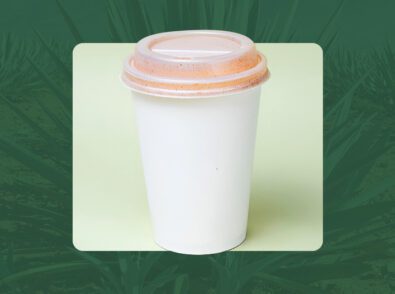SB 54: California’s State Law to Reduce Single-Use Packaging and Plastic Foodservice Ware

The Plastic Pollution Producer Responsibility Act, SB 54, addresses the large-scale use and impact of single-use packaging and plastic disposable foodservice ware in California. Packaging is a large portion of what ends up in California’s landfills, and this law is designed to restrict and regulate the companies that produce it. The law requires that all forms of single-use packaging and food ware be recyclable or compostable by 2032.
What Is California’s Plastic Law SB 54?
Senate Bill 54 is a significant step forward, surpassing other state’s efforts to reduce single-use plastic production and pollution. It’s shifted the responsibility of preventing plastic pollution from consumers to the plastic industry. It dictates specific targets and compliance regulations for producers to meet over the years leading up to 2032.
When Was the CalRecycle SB 54 Bill Passed?
Senate Bill No. 54 was signed into law by Governor Gavin Newsom on June 30, 2022. In 2023, CalRecycle named an advisory board, held informal rulemaking workshops, and engaged with stakeholders. By 2024, they had publicly outlined recyclable and compostable categories. The adoption of Senate Bill 54 regulations began in 2025 with a clear timeline laid out for the coming years.
What Is the Timeline for Senate Bill 54 in California?
CalRecycle has published a specific goals timeline until the final targets are reached in 2032:
- 2025: Adopt regulations and submit the first biennial progress report to the Legislature.
- 2026: Announce recycling rates at the start of the year.
- 2028: 30% of single-use plastic packaging and food ware will be recycled.
- 2030: 40% of single-use plastic packaging and food ware will be recycled.
2032 Goals
The state of California and CalRecycle have formulated SB 54 to eradicate single-use plastic packaging and food ware, with some exceptions, by 2032. The final year’s targets include:
- 65% of single-use plastic packaging and food ware sold, distributed, or imported in California after January 1, 2032, will be recycled in the state.
- 25% less plastic in weight will be sold or distributed in California.
- 100% of packaging and single-use plastic food ware will be compostable or recyclable.
Everything You Need to Know About California’s Senate Bill 54
SB 54 is one of the most comprehensive Extended Producer Responsibility (EPR) Bills in the United States. The regulations may affect vendors from outside the state who partner with California. Therefore, organizations in California and those within SB 54’s reach through partnerships must be familiar with the bill to ensure compliance and avoid fines. Many businesses will have to join a Producer Responsibility Organization (PRO) or apply as independent producers.
What Is a PRO?
A PRO is a Producer Responsibility Organization approved by CalRecycle. SB 54 requires residential and commercial producers of plastic single-use food ware and packaging to join a PRO. Their payments to the PROs then fund the end-of-life cycle of each producer’s materials. The PRO ensures brands collaborate to finance efficient collection, processing, and recycling and work to build a circular economy.
According to the Circular Action Alliance (CAA), the first approved PRO, Producer Responsibility Organizations must pay the state $500 million annually from 2027 to 2037. The fees will be placed in the California Plastic Pollution Mitigation Fund and used to continue sustainability efforts.
Do All Producers Have to Join a PRO?
Producers can comply individually but only if they can prove a recycling rate of 65% or more in the three years between January 1, 2024, and January 1, 2027, and maintain and demonstrate a recycling rate of at least 70% in the following years. Participating in a PRO may help your business stay compliant because groups like the CAA send alerts to producers and support them in fulfilling obligations. Otherwise, producers can submit an individual compliance plan for approval.
Who Does SB 54 Apply to?
SB 54 applies to producers, which includes manufacturers, brand owners, or anyone making or selling a product using materials covered by this law. Many businesses will be held accountable, including:
- Food and beverage companies.
- Restaurants and stores.
- Apparel and footwear brands.
- Homegoods companies.
- Consumer Packaged Goods (CPG) manufacturers.
- All retailers selling products with covered packaging.
What Are the Penalties for SB 54 in California?
Noncompliance with SB 54 regulations will make retailers, producers, and wholesalers susceptible to fines and penalties. CalRecycle may impose civil penalties of up to $50,000 per day per violation, which will go to the Circular Economy Penalty Account.
What Products Are Covered?
Foodservice ware and packaging the SB 54 bill covers include:
- Single-use packaging of any material: This includes plastic, paperboard, metal, glass, paper, and multi-layer materials.
- Plastic single-use foodservice ware: All items given or sold to customers by food vendors, including lids, trays, straws, cutlery, cups, stirrers, lidded containers, plates, wrappers, clamshells, all auxiliary food containers, and any other items with plastic components.
What Products Are Excluded From SB 54 Regulations?
Some items are exempt from the law, including packaging used for the following products:
- Prescription drugs
- Medical products
- Drugs used for animal medicines
- Infant formula
- Medical food
- Nutritional supplements for medical conditions
- Certain insecticides, fungicides, and rodenticides
- Flammable or hazardous products
- Products that must be stored for longer than five years
- Products covered under the architectural paint recovery program
- Covered material that meets certain criteria
What Are the Benefits of Senate Bill 54?
This bill is a win for the environment, even if much more still needs to be done. Besides generally encouraging change, California’s SB 54 law benefits the environment and economy by:
- Legally requiring all single-use food ware and packaging to be fully compostable or recyclable by 2023.
- Reducing the volume of plastic used for packaging and shifting expenditure to sustainable materials.
- Transferring the cost of collecting, processing, and recycling single-use packaging from local governments to plastic producers.
- Stimulating the formation of circular economies.
- Inspiring focus and investment in reuse and refill programs.
- Driving innovation for new packaging and foodservice ware solutions.
How Greenprint Can Help
Greenprint has been creating sustainable solutions for the disposables industry since 2019. We help stores and restaurants maintain compliance and address the issue of single-use plastics, packaging, and food ware.
Our environmentally friendly products include clamshells, cups, cutlery, plates, and straws made from recyclable and compostable materials. Contact our team directly to learn more about sustainable packaging alternatives.
References
- https://leginfo.legislature.ca.gov/faces/billTextClient.xhtml?bill_id=202120220SB54
- https://calrecycle.ca.gov/
- https://calrecycle.ca.gov/packaging/packaging-epr/
- https://calrecycle.ca.gov/packaging/packaging-epr/#
- https://leginfo.legislature.ca.gov/faces/billTextClient.xhtml?bill_id=202120220SB54#
- https://circularactionalliance.org/circular-action-alliance-california
- https://www.sidley.com/en/insights/newsupdates/2024/03/businesses-subject-to-sb-54-must-join-the-ca-producer-responsibility-organization-by-july-1-2024





